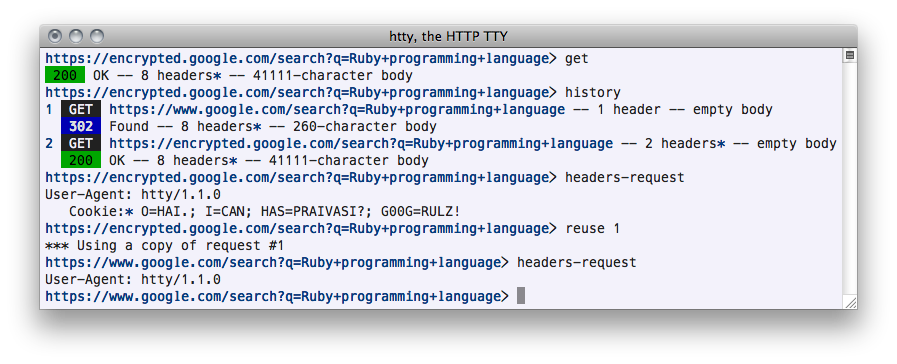Features
- Intuitive, Tab-completed commands and command aliases
- Support for familiar HTTP methods GET, POST, PUT, and DELETE, as well as PATCH, HEAD, OPTIONS and TRACE
- Support for HTTP Secure connections and HTTP Basic Authentication
- Automatic URL-encoding of userinfo, paths, query-string parameters, and page fragments
- Transcripts, both verbose and summary
- Scripting via stdin
- Dead-simple cookie handling and redirect following
- Built-in help
The things you can do with htty are:
- Build a request — you can tweak the address, headers, cookies, and body at will
- Send the request to the server — after the request is sent, it remains unchanged in your session history
- Inspect the server’s response — you can look at the status, headers, cookies, and body in various ways
- Review history — a normal and a verbose transcript of your session are available at all times (destroyed when you quit htty)
- Reuse previous requests — you can refer to prior requests and copy them





